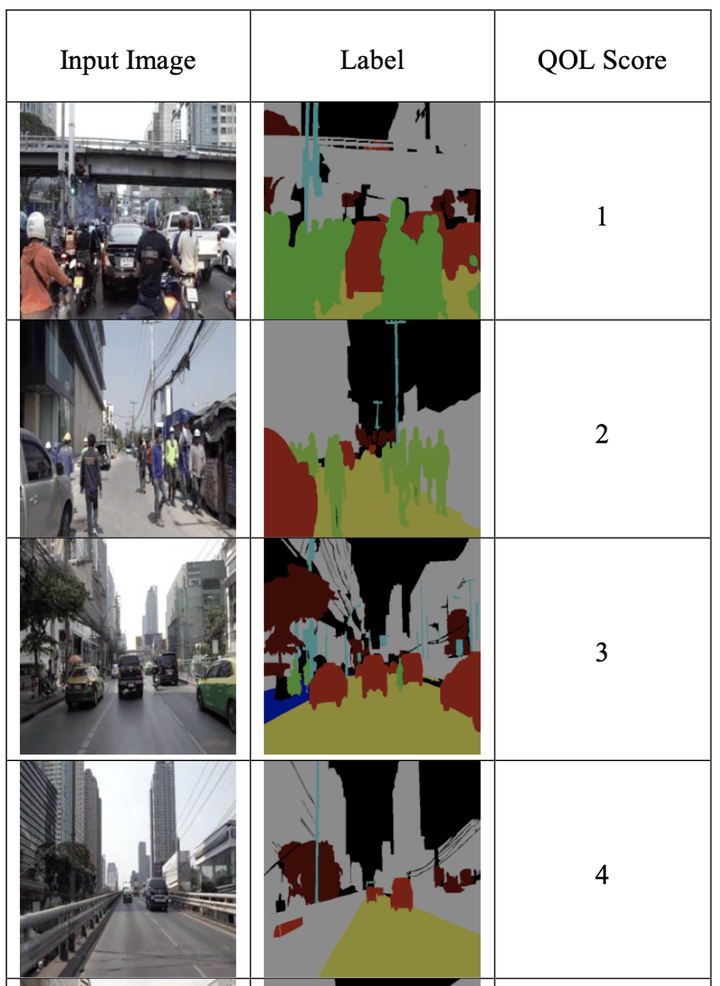Quality of Life Prediction in Driving Scenes on Thailand Roads Using Information Extraction from Deep Convolutional Neural Networks

Abstract
In the modern era, urban design and sustainable development are vital topics for megacities, as they are important for the wellbeing of its residents. One of the effective key performance indices (KPIs) measuring the city plan’s efficiency in quantity and quality factors is Quality of Life (QOL), an index that policymakers can use as a critical KPI to measure the quality of urbanscape design. In the traditional approach, the researchers conduct the questionnaire survey and then analyze the gathered data to acquire the QOL index. The conventional process is costly and time-consuming, but the result of the evaluation area is limited. Moreover, it is difficult to embed in an application or system; we proposed artificial intelligence (AI) approaches to solve the limitation of the traditional method in Bangkok as a case study. There are two steps for our proposed method. First, in the knowledge extraction step, we apply deep convolutional neural networks (DCNNs), including semantic segmentation and object detection, to extract helpful information images. Second, we use a linear regression model for inferring the QOL score. We conducted various state-of-the-art (SOTA) models and public datasets to evaluate the performance of our method. The experiment results show that our novel approach is practical and can be considered for use as an alternative QOL acquisition method. We also gain some understanding of drivers’ insights from the experiment result. Implementation codes and dataset are available at https://kaopanboonyuen.github.io/bkkurbanscapes.